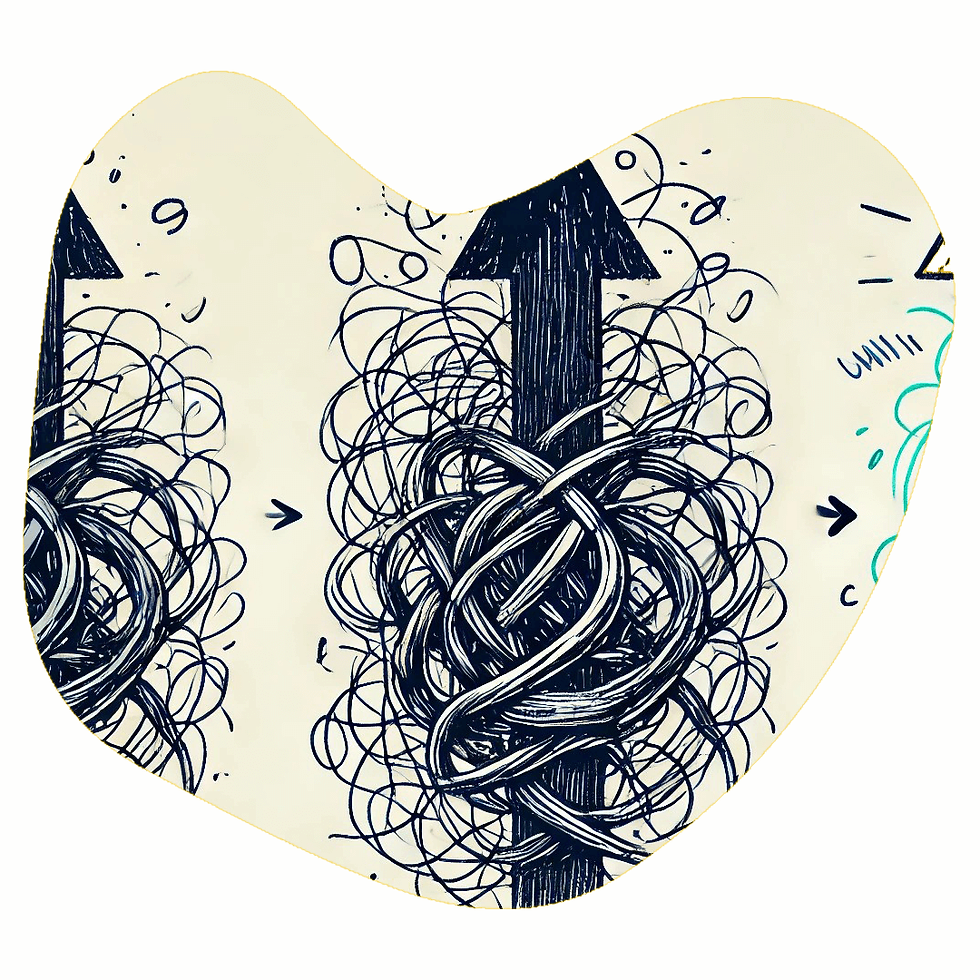From Falafel to Fortune: Starting Small, Scaling Fast for Global Impact
- The Falafel Theory Team

- Oct 22, 2024
- 3 min read
Updated: Jan 6, 2025
Picture this: A street vendor stands on a bustling corner, expertly crafting falafels with just a handful of ingredients. The aroma wafts through the air, drawing in crowds from all around. What began as a simple food made from chickpeas has become a beloved staple worldwide. This is the story of how something small can transform into something monumental.

In a world obsessed with overnight success and giant leaps, we often overlook the humble beginnings that lay the foundation for greatness. The narrative of "starting small and scaling fast" isn't just a catchy slogan—it's a proven strategy rooted in the essence of the Falafel Theory.
The Humble Beginnings
The falafel, a modest ball of ground chickpeas or fava beans mixed with herbs and spices, originated in the Middle East centuries ago. It wasn't invented in a high-tech kitchen or backed by significant investment. Instead, it was born out of necessity and resourcefulness, providing sustenance using readily available ingredients.
This simple dish didn't remain confined to its place of origin. Through trade, migration, and cultural exchange, the falafel crossed borders and oceans, becoming a global favorite. Its journey from a local staple to an international delight exemplifies how starting small doesn't limit potential—in fact, it can be the catalyst for exponential growth.
Applying the Falafel Theory
The Falafel Theory teaches us that by beginning with a simple, focused idea, we can create solutions that are not only effective but also scalable. Here's how you can apply this principle to your projects and initiatives:
1. Identify a Core Need
Every great solution starts with addressing a fundamental need. The falafel met the basic requirement for a nutritious, affordable meal. In your context, ask yourself: What is the essential problem that needs solving? Focus on the core issue without getting sidetracked by peripheral concerns.
2. Utilize Available Resources
You don't need exotic materials or cutting-edge technology to start. Use what's at your disposal. The falafel's ingredients were common and accessible. Similarly, leverage your existing skills, networks, and materials to kickstart your project.
3. Keep It Simple
Complexity can hinder progress. By keeping your initial solution straightforward, you make it easier to implement, understand, and share. A simple idea is more adaptable and can be improved upon over time.
4. Test and Refine Quickly
Don't wait for perfection before launching. Release your solution on a small scale, gather feedback, and make adjustments. This iterative process allows for rapid improvement and better alignment with the needs of your audience.
5. Plan for Scalability
While starting small, think about how your solution can grow. The falafel spread globally because it was easy to replicate and adapt to different tastes and cultures. Design your projects with scalability in mind, ensuring they can be expanded without losing their core effectiveness.
Success Stories: Small Starts, Big Impact
Consider the tech giants that began in garages—companies like Apple and Amazon. They started with modest resources and focused on a simple idea: creating user-friendly computers or selling books online. By adhering to their core principles and adapting as they grew, they scaled rapidly to become industry leaders.
In social initiatives, programs like microfinancing started by offering small loans to entrepreneurs in impoverished communities. These modest beginnings have empowered millions worldwide, lifting them out of poverty and stimulating local economies.
Overcoming the Fear of Starting Small
Many people hesitate to begin because their resources seem insufficient or their ideas too insignificant. However, starting small isn't a limitation—it's a strategic advantage. It allows you to:
Minimize Risk: With less at stake, you can experiment and innovate without the fear of massive losses.
Learn and Adapt: Small-scale operations provide valuable insights that guide future expansion.
Build Momentum: Early successes, no matter how minor, generate enthusiasm and credibility.
Inspiration to Take the First Step
Imagine your idea as a seed—small, unassuming, but with the potential to grow into something magnificent. All it needs is the courage to plant it and the dedication to nurture it.
Don't let the size of your beginnings deter you. Every monumental achievement started somewhere. By embracing the principles of the Falafel Theory, you can transform your simple ideas into powerful forces for change.
So, what are you waiting for?
Identify that one idea that's been on your mind.
Use what you have right now to bring it to life.
Keep it simple, and don't be afraid to start small.
Your falafel—your simple idea—could be the next big thing that scales fast and impacts the world.




Comments